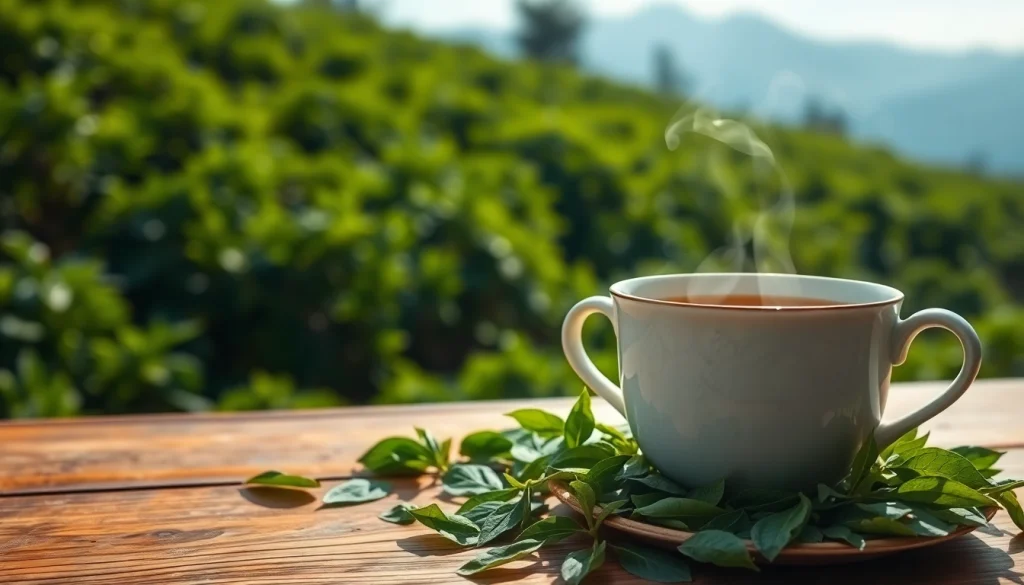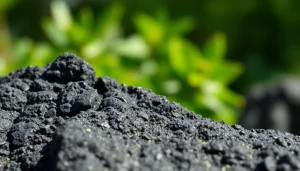Experience the Rich Flavors and Heritage of Nepali Tea

1. Introduction to Nepali Tea
Nepali tea has emerged from the serene landscapes of the Himalayas, boasting a rich heritage and unique flavors that dazzle tea lovers worldwide. Known for their aromatic profiles and distinct characteristics, Nepali tea is gaining popularity among both casual drinkers and connoisseurs alike. The cultivation of tea in Nepal dates back to the early 19th century, but it has gradually garnered international acclaim for its high quality and diverse varieties.
1.1 What is Nepali Tea?
Nepali tea is primarily made from the leaves of the Camellia sinensis plant, cultivated at various altitudes in Nepal. The country’s unique climatic conditions—including cooler temperatures and rich soil—produce tea with distinct aromas and tastes, often compared to the famed Darjeeling teas produced in India. Various varieties of Nepali tea are available, including black, green, oolong, and white teas, each with its own flavor profile and brewing requirements.
1.2 History and Cultural Significance
The history of tea in Nepal is closely linked to its cultural landscape. Tea was first introduced during the British colonial rule, particularly in the Ilam region, where the climate proved ideal for tea cultivation. Over the years, tea has become a central component of Nepali hospitality, commonly served during social gatherings and ceremonies. Cultural traditions surrounding tea have evolved, incorporating local spices and herbal infusions that add richness and flavor.
1.3 Different Varieties of Nepali Tea
Nepal produces a diverse range of tea varieties, each reflecting its unique terroir:
- Black Tea: Known for its robust flavor, black tea from Nepal often features muscatel notes and floral undertones.
- Green Tea: Made from young leaves, Nepali green tea is known for its delicate, fresh taste, typically with grassy or vegetal notes.
- Oolong Tea: This semi-oxidized tea combines characteristics of both black and green tea, offering a complex flavor profile.
- White Tea: Harvested from young leaves and buds, Nepali white tea is celebrated for its subtle sweetness and lightness.
2. Health Benefits of Nepali Tea
Nepali tea is not just a delightful drink; it is also packed with health benefits that can contribute to overall wellness. Understanding these benefits can help one appreciate the beverage beyond its flavor.
2.1 Nutritional Profile
Nepali tea contains various beneficial compounds, including polyphenols, flavonoids, and theanine. These components contribute to its antioxidant properties and overall health benefits. Regular consumption can aid digestion and improve mental clarity, enhancing the drinking experience.
2.2 Antioxidant Properties
One of the standout features of Nepali tea is its high antioxidant content. Antioxidants help combat oxidative stress in the body, contributing to overall health and potentially reducing the risk of chronic diseases. The unique climatic factors in which Nepali tea is grown enhance these beneficial compounds, making it a superlative choice among health-conscious tea drinkers.
2.3 Impact on Overall Wellness
The benefits of Nepali tea extend into various aspects of wellness. Regular consumption may improve heart health, assist with weight management, and provide a soothing effect that can aid in stress reduction. It’s also a great choice for hydration, serving as a flavorful alternative to water.
3. Brewing Methods for Perfect Nepali Tea
Brewing Nepali tea correctly is essential to unlocking its full flavor potential. Whether you use traditional methods or modern techniques, knowing the right approach makes all the difference.
3.1 Traditional Brewing Techniques
In Nepal, tea is often brewed using traditional methods that highlight its rich flavors. A common approach includes boiling water, adding loose tea leaves, and simmering gently before straining. This method allows for the full infusion of the tea’s aroma and taste.
3.2 Modern Brewing Equipment
For those preferring a modern touch, various tea brewing tools are available. Teapots made of glass, ceramic, or cast iron can enhance the brewing process, while infusers or tea bags offer convenience for those on the go. Electric kettles with temperature control can also improve precision when brewing delicate varieties like white or green tea.
3.3 Recommended Brewing Times and Temperatures
Different types of Nepali tea require specific brewing times and temperatures for the best results:
- Black Tea: Brew at 95°C (203°F) for 3-5 minutes.
- Green Tea: Brew at 80°C (176°F) for 2-3 minutes.
- Oolong Tea: Brew at 90°C (194°F) for 3-5 minutes.
- White Tea: Brew at 85°C (185°F) for 4-5 minutes.
4. Pairing and Enjoying Nepali Tea
Pairing Nepali tea with the right foods can enhance its taste and overall experience. Understanding these pairings can make your tea-drinking moments more enjoyable.
4.1 Best Foods to Accompany Nepali Tea
Nepali tea pairs exquisitely with numerous dishes:
- Light Snacks: Pastries, cookies, or savory fritters work well.
- Traditional Meals: Rice dishes or lentil soups can enhance the tea’s flavors.
- Spicy Foods: The smoothness of the tea complements the heat of spicy Nepali dishes.
4.2 Creating the Perfect Tea Experience
Creating an ideal tea-drinking experience involves more than just good tea. Consider the ambiance, use quality glassware, and select appropriate aromatics to heighten the senses. Engage your guests with stories about the origins of the tea and its unique flavors for a more immersive experience.
4.3 Cultural Rituals Involving Tea
Tea in Nepal is often more than a beverage—it’s a ritual. Traditional gatherings and celebrations frequently feature tea, representing hospitality and friendship. Whether during greetings or major events, the act of sharing tea is integral to social bonding.
5. Where to Buy Authentic Nepali Tea
With the rising popularity of Nepali tea, finding authentic sources is essential for quality and taste. Various avenues exist for purchasing genuine Nepali teas, catering to both local and international markets.
5.1 Trusted Online Vendors
For global accessibility, numerous online retailers specialize in Nepali teas. These vendors often provide a variety of loose-leaf options, catering to different tastes:
- Nepali Tea Traders – known for their organic, handpicked selections.
- Rare Tea Company – offers a curated selection of premium Nepali teas.
- The Steeping Room – features a range of green, black, and oolong teas.
5.2 Local Shops Specializing in Nepali Tea
For those preferring a personal touch, local specialty shops often have Nepali tea selections. Seek out stores that focus on fair trade and sustainable sourcing, which typically carry high-quality products and support the welfare of the artisans.
5.3 Understanding Ethical and Sustainable Sourcing
When purchasing Nepali tea, consider the sourcing practices. Ethical and sustainable sourcing supports fair labor practices and environmental conservation. Many Nepali tea producers practice organic farming and emphasize sustainability, so select vendors that share similar values.







